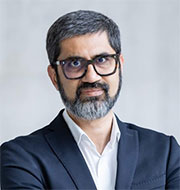
GENEVA, Apr 25 (IPS) – Because the G20 Well being Working Group convened in KwaZulu-Natal below South Africa’s presidency earlier this 12 months, a central query echoed throughout plenaries: How can we speed up common well being protection (UHC) in an more and more unequal world?
With greater than half of the worldwide population- over 4.5 billion individuals, missing entry to important well being companies, the reply should start with those that are most systematically left behind: girls, kids, and adolescents.
The State of UHC: Lagging and uneven progress
Regardless of some progress, we’re off monitor to fulfill SDG goal 3.8 on UHC. The UHC service protection index improved solely marginally from 65 to 68 between 2015 and 2021, and has stagnated thereafter. Worse nonetheless, the variety of individuals pushed into excessive poverty attributable to out-of-pocket (OOP) well being prices stands at a staggering 1.3 billion globally.
These monetary shocks don’t fall evenly. Ladies, kids, and adolescents are significantly weak to catastrophic well being expenditures attributable to their greater well being wants and frequent exclusion from social safety mechanisms.
For instance, an evaluation by Save the Youngsters in 2024 discovered that 1 in 5 kids can be born with out expert attendance, a examine by WHO notes {that a} excessive proportion of SRHR-related companies (together with household planning, maternal care, and adolescent well being) inadequately prioritized in UHC plans and are paid for out-of-pocket.

Important WCAH companies—people who save lives and cut back inequity—are too typically omitted or underfunded in nationwide UHC profit packages. For example, a overview of important packages of well being companies discovered that in 17 nations (of 51 surveyed) which have outlined lists of important interventions just one absolutely consists of all 9 important SRHR service bundles beneficial by UNFPA of their UHC schemes.
Even when included nominally, protection is commonly partial. For instance, contraceptive companies could also be listed in UHC packages however not lined by public financing—leaving prices to girls and households. Adolescents, specifically, face acute gaps in companies. An estimated 1.2 million adolescents die annually, largely from preventable causes. WHO has dedicated to integrating adolescent-responsive well being companies into major care.
These gaps aren’t the results of technical limitations—they’re political selections. And in an period the place the price of inaction is measured in misplaced lives and missed alternatives, these are selections we can not afford to take care of.
Fairness: The Litmus Check of Progress
Fairness should grow to be the defining lens of the G20’s well being agenda. Even the place nationwide progress has been made, protection stays deeply unequal. For example, a examine of 25 nations in sub-Saharan Africa, discovered kids from the wealthiest households extra prone to obtain important immunizations than these from the poorest in 23 nations.
In city slums and rural areas alike, adolescent ladies face structural boundaries to accessing SRHR companies attributable to stigma, value, and lack of youth-friendly care.
Throughout battle and humanitarian settings, girls and youngsters face a few of the worst well being outcomes however obtain the least funding. Mixture information masks these realities. The promise of UHC can’t be fulfilled with out disaggregated monitoring and focused interventions that prioritize these furthest behind.
A Name to Recenter WCAH in UHC
G20 nations wield immense affect in world well being financing and governance. As such, they have to:
–Embed Complete WCAH Providers in UHC Schemes: Guarantee all important SRHR companies are included, absolutely financed, and shielded from OOP prices.
–Increase Fairness-Centered Monitoring: Disaggregate UHC indicators by age, gender, revenue, and geography to make inequities seen and actionable.
–Spend money on Main Well being Care (PHC): PHC methods should be geared up to ship built-in, people-centered WCAH companies, with sturdy group well being parts.
–Drive World Management and Home Dedication: Align financing, governance, and accountability buildings to help WCAH as a non-negotiable pillar of resilient well being methods.
South Africa, which leads the G20 this 12 months additionally heads the World Leaders Community (GLN) for Ladies’s, Youngsters’s and Adolescents’ Well being offering a lot required southern led world management on this difficulty.
A Defining Second
That is greater than a coverage debate. It’s a defining second for world solidarity and justice at a time when these values are below assault. Ladies, kids, and adolescents symbolize not solely a demographic majority—but in addition nearly all of these excluded, underserved, and overburdened by weak well being methods.
To construct well being methods which can be really equitable, inclusive, and sustainable, G20 leaders should put WCAH on the heart of the UHC agenda. Not as an afterthought—however as a foundational precedence.
We urge the G20 to grab this chance—to speculate the place it issues most, and to make sure that no lady, no youngster, and no adolescent is left behind.
Rajat Khosla is the Govt Director of the Partnership for Maternal, New child & Youngster Well being (PMNCH).
IPS UN Bureau
Comply with @IPSNewsUNBureau
Comply with IPS Information UN Bureau on Instagram
© Inter Press Service (2025) — All Rights Reserved. Unique supply: Inter Press Service














